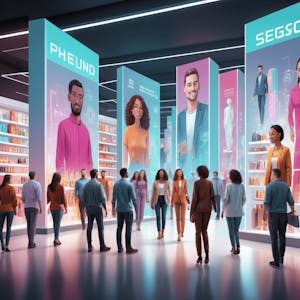Plant Bioinformatic Methods
About this Specialization
The past 15 years have been exciting ones in plant biology. Hundreds of plant genomes have been sequenced, RNA-seq has enabled transcriptome-wide expression profiling, and a proliferation of \"-seq\"-based methods has permitted protein-protein and protein-DNA interactions to be determined cheaply and in a high-throughput manner. These data sets in turn allow us to generate hypotheses at the click of a mouse or tap of a finger.The Plant Bioinformatics Specialization on Coursera introduces core bioinformatic competencies and resources, such as NCBI\'s Genbank, Blast, multiple sequence alignments, phylogenetics in Bioinformatic Methods I, followed by protein-protein interaction, structural bioinformatics and RNA-seq analysis in Bioinformatic Methods II. In Plant Bioinformatics we cover 33 plant-specific online tools from genome browsers to transcriptomic data mining to promoter/network analyses and others. Last, a Plant Bioinformatics Capstone uses these tools to hypothesize a biological role for a gene of unknown function, summarized in a written lab report.This specialization is useful to any modern plant molecular biologist wanting to get a feeling for the incredible scope of data available to researchers. A small amount of R programming is introduced in Bioinformatic Methods II, but most of the tools are web applications. It is recommended that you have access to a laptop or desktop computer for running these as they may not work as mobile applications on your phone or tablet.Created by: University of Toronto

Related Online Courses
Come and learn the language which is spoken by more than 1 billion people and is getting more and more learners. This may enable you to know and do business with people from one of the world\'s... more
This program is intended for anyone who wants to learn how to develop Apps using Swift and iOS. Through four courses, you will learn topics beginning with the absolute basics and ending with... more
Who are your customers? What are they like? How do they interact with your business? This Short Course was created to help analysts better understand their customer behaviour through the power of... more
\"Mandarin Chinese 2: Chinese for Intermediate Learners\" is the second course of the MOOC specialization \"Learn Intermediate Mandarin Chinese\" created by Shanghai Jiao Tong University.Created... more
e.g. This is primarily aimed at first- and second-year undergraduates interested in engineering or science, along with high school students and professionals with an interest in programmingGain the... more








